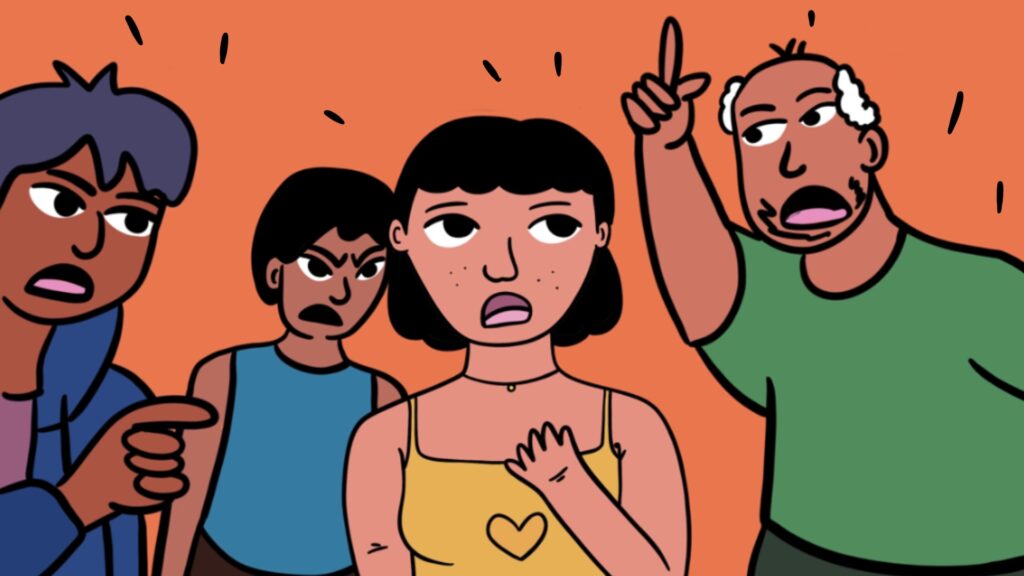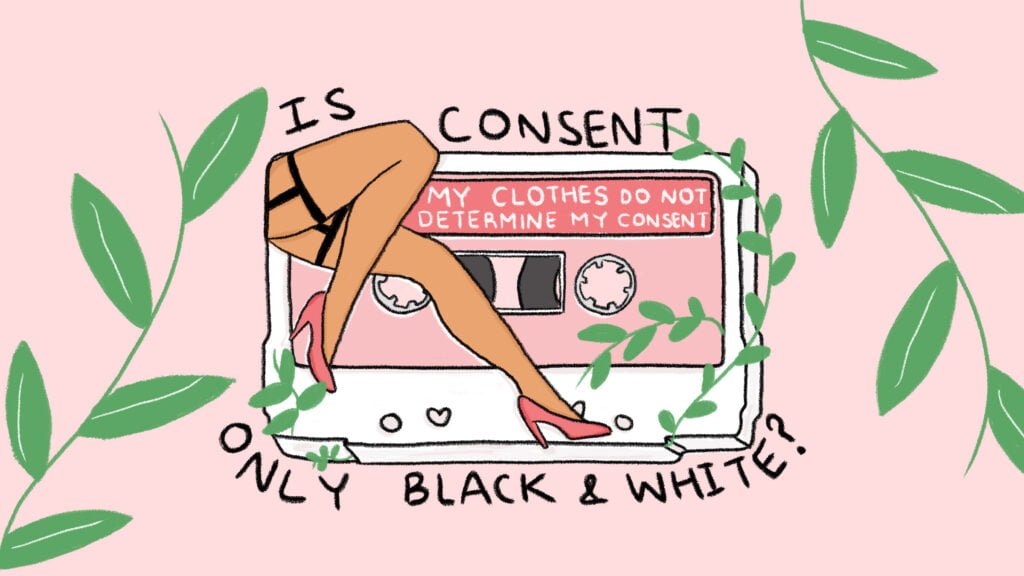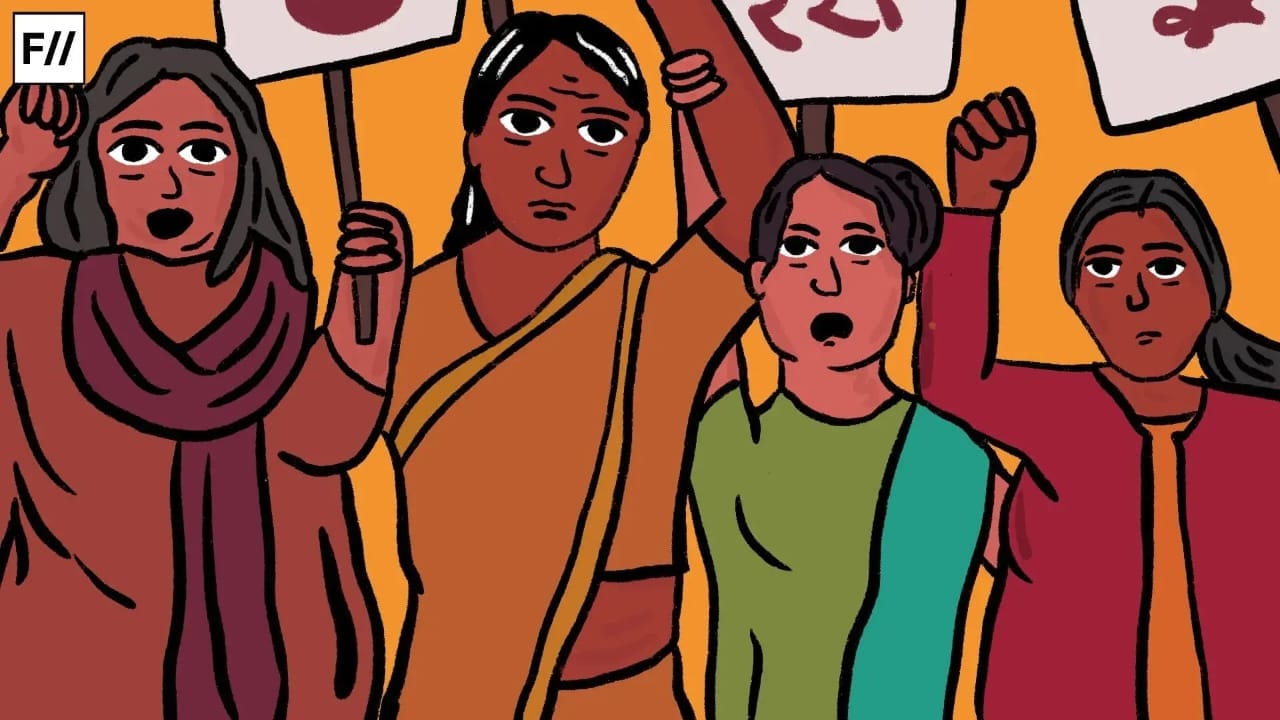One of the main initiators of the imposition and propagation of gender stereotypes in society is culture. Cultures support the development of pride, resiliency, belonging, intersectional identities, and communal bonds. However, gender-based violence and injustice are justified by conventional ideas and customs about how women and girls should be treated. Depending on the culture, gender violence is viewed in several ways: as an inadvertent issue by society, a convenient explanation by communities, or as having a systematic connection to stereotypes.
“The struggle is for a fundamental change in social relationships rather than a per community quota for representation in the parliament of racism and ethnicity. We are engaged in politics—linking theory to practice, examining ideologies through our lives, and our own lives through revolutionary ideas. We are not shopping in the market of cultural differences.” mentions Himani Bannerji in Returning the Gaze
The Indian society in the modern 21st-century era has given birth to new ideals and parameters of morality specifically assigned to the minorities to function ‘safely’ and ‘properly’. Women have historically been the subject of concern and scrutiny as they are supposed to uphold the ‘dignity’ of the family and society. Policing women for their behaviour, attire, education, and way of talking are amongst the many other attributes the ‘moral’ society does to keep them in check. Even if society is transcending into modernity many flag bearers of morality are still trying to play their part and tell women what to wear.
These notions of morality catalyze rape culture amongst communities that blame women for their clothing which in turn attracts men to harass them. Women are blamed in heinous cases of rape, harassment, and murder where they wear dresses that incite men to commit these crimes. It is extremely appalling to see how women are victimized and blamed for the crimes others commit.
With the advent and advance of accessibility of the internet and direct availability of news and information about the lives of celebrities and famous people , the public has all the more become vigilant of what the proper clothing should be for women. It is surprising how even now freedom is so subjective and decided by a certain power hierarchy.

Although most of us consume the content available online , we do not want that implemented in real. Bollywood has always been considered a place of immorality for actresses while actors like Akshay Kumar are true patriots. One such internet sensation that has attracted immense attention from the public and celebrities alike is Uorfi Javed. Uorfi first came into the limelight through the Bigg Boss OTT season 1 and then appeared in various Hindi serials. She is currently seen on Splitsvilla.
Uorfi has been in the headlines always for her ‘bold’ dressing choices that include dresses made from safety pins, tapes, flowers and paint. Her attire and her ‘going out’ wearing such clothes has been labelled as ‘vulgar’ and ‘attention-seeking’ and has even invited threats by several ‘influencers’.
Also read: Contextualising Experience, Choice And Consent in Contemporary Feminist Discourse
The most recent person to accuse Uorfi of spreading vulgarity amongst young girls is the self-proclaimed flag bearer of morality and purity and former Bigg Boss contestant Hindustani Bhau. Bhau made the headlines through the videos shot in his car where he confidently used slurs derogatory to women to speak on issues he deems relevant. His popularity gave rise to similar ‘influencers’ like Shubham Mishra who used such platforms to give threats to women like comedian Agrima Joshua. Hindustani Bhau in his video made the following comments:
‘Yeh message Urfi Javed ke liye hai, Jo aaj khudko bohot badi fashion designer samajh rahi hai, Bhau stated in the video. Beta, Yeh Hindustan ka rivaaz nahi hai, Yeh jo bahar tu kapde ke naam pe kuch bhi pehen ke nikal rahi hai. Toh sudhar Jana, warna main sudhar dunga, yeh Sanskriti nahi hai tere wajeh se behen betiyon ko galat message ja raha hai. Sudhar Jana: Ek bhai ke naate bol raha hu.”
(This message is for Urfi Javed; while your claim to be a well-known fashion designer, the attire you choose to wear outside is inappropriate. You are giving the women the incorrect message and this is not our culture. Therefore, you must quit doing it or I will force you to. I am saying this as your brother.)
This very comment where Bhau tells her to improve and quit her vulgarity or he will force her to do so is the very epitome of a rape culture that is rising in the current society. Hindustani Bhau is not the only one to pass comments on Uorfi. Renowned writer Chetan Bhagat in a recent literary event made a passing comment on Uorfi Javed.
“Phone has been a huge diversion for the kids, especially the boys, spending hours just watching Instagram Reels,” Chetan Bhagat stated at the occasion. “Everyone is familiar with Urfi Javed. How will you use her pictures? Is it going to affect your tests or will you go to a job interview and claim to be familiar with all of the interviewer’s attire? On one side, there is a youngster protecting our country at Kargil, and on the other side, we have another youth that is seeing Urfi Javed’s photographs hiding in their covers,” he continued.
Also read: Equating Freedom Of Choice With ‘Western Culture’: The Gendered Policing Of Individual Expression
This comment seemed entirely irrelevant to his thoughts about internet usage and mobile addiction. If someone has used their creativity in a certain way, the criticism can be made on the activity and not the person. The creation can be called useless or amazing but to label Uorfi as ‘vulgar’, ‘immoral’ and ‘undignified’ only highlights how patriarchal and oppressive the society still is.

According to attorney Geetha Mohan, moral policing is not supported by the law. She stated: “No law, not even the Indian Penal Code, defines obscenity. People can claim that short clothing leads to depravity in young people’s thoughts, but that is simply going too far. First off, an act is not considered indecent or obscene if it does not cause a public nuisance. Second, call the police rather than taking up the case yourself if you believe someone is creating a public disturbance.”
The major accusation about Uorfi’s stints has been affecting the young minds with her vulgarity while the similar behaviour meted out by patriarchal influencers like Hindustani Bhau is not censored. Does this provocation and promotion of rape culture not affect young minds and make them believe that they could do the same thing? This new upcoming behaviour of cyber threats and harassment in the comment section is a result of this same threatening attitude the patriarchal ‘influencers’ hold. There is double discrimination and oppression meted out to Uorfi due to her gender and religion. Maulvis have even come out and made statements of how she has dismantled the very morality of Islam. Although Uorfi, has been active in replying to such comments, not many women receive the opportunity to do the same.
Even common girls and women are eve-teased and harassed due to their clothing and academic institutions also use this patriarchal mindset to police students. This prevalent culture of moral policing has transcended into the behaviour and practices of the general public.
Also read: Fundamentalism And Women’s Choices: The Congruence Between Iran, France, And India
Here are a few instances that took place in the last year: Neha Paswan, a native of the UP town of Savreji Kharg, was reportedly beaten to death by her grandfather and uncles as a result of her decision to wear western clothing to a household ceremony. According to a group of women in Chennai, RTO staff members instructed them to “dress suitably” for the driving test. They were dressed in capris or jeans. Irfan Pathan’s wife received online abuse for flaunting her nail polish and baring her arms while wearing a burqa.

Rape culture is encouraged by society’s use of the crime of rape as justification for morally
policing how women should dress. Feminism and other women’s liberation movements are necessary because patriarchy, which is ingrained in society, still dominates and oppresses women.





